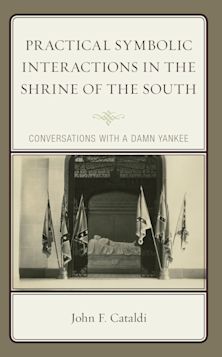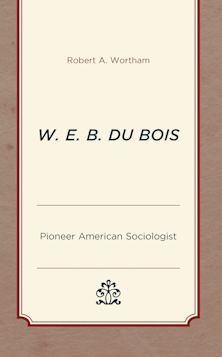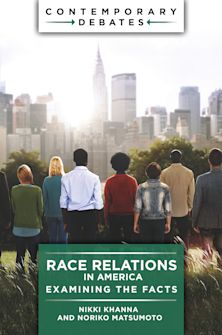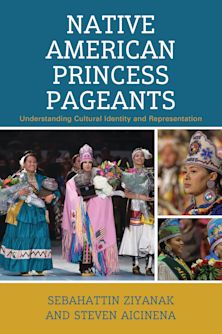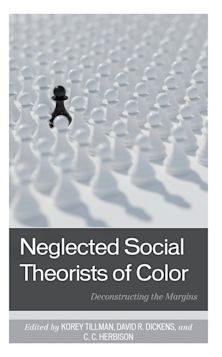- Home
- ACADEMIC
- Sociology
- Sociology of Ethnic and Racial Studies
- Intersectionality in the Muslim South Asian-American Middle Class
Intersectionality in the Muslim South Asian-American Middle Class
Lifestyle Consumption beyond Halal and Hijab
Intersectionality in the Muslim South Asian-American Middle Class
Lifestyle Consumption beyond Halal and Hijab
This product is usually dispatched within 2-4 weeks
- Delivery and returns info
-
Flat rate of $10.00 for shipping anywhere in Australia
You must sign in to add this item to your wishlist. Please sign in or create an account
Description
This book uses everyday consumption as a lens to analyze how South Asian Muslim American women negotiate racial, religious, gendered, classed, and often political identities. In particular, Ternikar examines the use of food and clothing as well as social media accounts among this important immigrant population, offering new insight that goes beyond examining Muslim American women through the lens of hijab. This timely and nuanced interdisciplinary study draws on both sociology of consumption theory and intersectional feminism and will be valuable for courses in gender and women’s studies, sociology of consumption, and women and religion.
Table of Contents
Acknowledgments
Introduction
Chapter 1: Beyond Authentic Curry and Halal Kebobs
Chapter 2: Bicultural Identities, Prada Bags and Saris?
Chapter 3: Muslimgirls, Browngirls and the Consumption of Social Media
Conclusion
References
Index
About the Author
Product details
| Published | 22 Aug 2023 |
|---|---|
| Format | Paperback |
| Edition | 1st |
| Extent | 136 |
| ISBN | 9781793649416 |
| Imprint | Lexington Books |
| Dimensions | 228 x 150 mm |
| Publisher | Bloomsbury Publishing |
About the contributors
Reviews
-
This book is a fascinating exploration of the interplay between identity formation and consumption patterns with special focus on food, dress, and social media. But its sophisticated and nuanced description of the mutual impacts of politics, capitalism, and identity formation among South Asian Muslim women goes far beyond debates over clothing and dietary habits. Based on case studies in Chicago, Ternikar reveals women’s agency in both adapting to and maintaining distinct identities within dominant American cultures.
Tamara Sonn, director of the Alwaleed Center for Muslim-Christian Understanding, Georgetown University
-
Using an intersectional analysis that incorporates gender, social class, race, ethnicity, sexuality, religion, and immigrant status, Ternikar complicates classical sociological accounts of consumption. She shows how middle-class, college educated, second-generation South Asian Muslim American women navigate the complex and often fraught dynamics of living in contemporary America, using consumption to form new identities, while maintaining ethno-religious traditions, and to create distinct bonds of friendship with other SAMA women. Ternikar’s account is a fascinating examination of their multi-faceted lives and identities.
Elaine Power, professor of women's studies, Queen's University
-
In this well-theorized and smartly researched book, Ternikar covers new territory in the fields of food, fashion, and consumption studies. By bringing the three approaches together, she helps readers recognize the multiple voices we speak in when we shop and the many ways those voices can be heard and misheard.
Megan Elias, director of gastronomy studies, Boston University
-
Intersectionality in the Muslim South Asian-American Middle Class: Lifestyle Consumption beyond Halal and Hijab is a much-needed study that explores the ways that Muslim women negotiate their immigrant, racial, ethnic, religious, and gendered identities through their consumption practices. Ternikar’s artfully shows how women drive a new economy around Muslim and South Asian consumption of food and fashion that blend their religious, ethnic, and American identities together. This book provides a nuanced look into the everyday practices of South Asian Muslim women who live in a post 9/11 society, highlighting the ways in which they create new cultural practices to produce a new Muslim American identity.
Saher Selod, associate professor of sociology, Simmons University
-
This book provides engaging and much-needed scholarly insights into the nuanced and varied everyday experiences of South Asian Muslim American (SAMA) women, with an important focus on how gender, religion, class, politics, race, and ethnicity play an integral role in shaping these women’s consumption practices. Ternikar’s intersectional exploration of the rich contexts that inform second-generation South Asian Muslim American women’s engagement with food and fashion in multiple cultural sites is a timely contribution that necessarily challenges stereotypical representations of Muslim women and highlights new and exciting directions in the study of immigrant and Muslim American identities.
Carol W.N. Fadda, associate professor of English, Syracuse University
-
Intersectionality in the Muslim South Asian-American Middle Class is a superb and original work that admirably unites Social Science and Ethnic Studies perspectives. Ternikar offers expert analysis of culinary and sartorial cultures in Asian diasporas across a range of fascinating topics. Skillfully weaving ethnographic fieldwork with leading theoretical paradigms, she posits vital counterpoints to essentialist conversations about authenticity and belonging. Imminently readable and teachable, this book delivers what scholars of Ethnic Studies and the Social Sciences have eagerly awaited: a Muslim-focused look at gender and consumption in the South Asian diaspora that meaningfully engages with contemporary debates about cuisine and fashion.
Shalini Shankar, Northwestern University

ONLINE RESOURCES
Bloomsbury Collections
This book is available on Bloomsbury Collections where your library has access.















